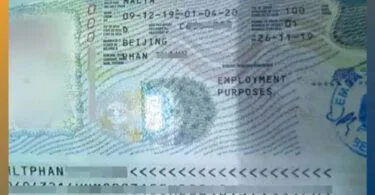Canada, a country with a high demand for speech-language pathologists, offers a pathway to permanent residency. Whether you have an employment offer or not, your skills as a speech-language pathologist can pave the way for you to relocate under Canada Express Entry. The NOC list for Canada, which designates immigration codes, includes 3141 for those seeking to relocate as a speech-language pathologist. This is also known as the NOC Code for Speech Therapists, a profession in high demand in Canada.
Speech-language pathologists, also known as Audiologists, have a deeply rewarding role. They examine, assess, and treat people with peripheral and central hearing loss, tinnitus, and balance issues. They also evaluate and treat human communication impairments related to speech, fluency, language, voice, and swallowing. This profession offers a diverse range of settings, from hospitals and community health centers to academic institutions and private practice, ensuring a fulfilling career path.
Table of Contents
Speech-language Pathologist Jobs And Demand In Canada
Currently, there is a significant demand for speech-language pathologists in Canada, a testament to the value and importance of this profession. The need is particularly high as a large part of the population is underserved in terms of hearing and balanced healthcare. With the population in Canada growing and life expectancy increasing, the number of seniors requiring these specialist services is expected to rise. This high demand, similar to other health professions, is projected to result in a strong job growth rate for speech-language pathologists, making them feel valued and in demand.
Speech-language pathologists are in high demand in Canada. They will expand throughout 2023-2028. New employment vacancies are anticipated to total 6800. The last academic conditions for speech-language pathologists include a Bachelor’s or Master’s program in speech-language pathology.
If you enjoy this article, don't miss out on the valuable insights and information available in our other related posts:
How To Become A Speech-language Pathologist In Canada
To practice as a speech-language pathologist in Canada, a bachelor’s or master’s program in speech-language pathology is a prerequisite. If you already hold an undergraduate certification, you can pursue a master’s in speech-language pathology, which typically takes two to three years to complete. Additionally, you must register with a regulatory entity for speech-language pathologists in one of the provinces and become a member of the Canadian Association of Speech-Language Pathologists and Audiologists, a federal association.
Often, they need to get a different certification to dispense hearing support as an Audiologist. To become certified in any occupation in Canada, you must complete the least number of clinical and instruction hours. To become a speech-language pathologist in Canada, you must have studied and practiced Speech-language pathology. The clinical and instruction hours needed to become certified differ by region.
Primary Duties Of A Speech-language Pathologist
- Serve exams, tests, and checks on patients to examine and assess speech, voice, resonance, fluency, and swallowing ailments.
- Create, strategize, and execute remedial programs to rectify speech, voice, resonance, fluency, mental language, and swallowing ailments.
- Develop group and individual care plans operating as a member of an interdisciplinary group.
- Teach and advise patients and households concerning communication and swallowing ailments.
- Study speech and other communication ailments and the growth and formation of diagnostic processes and devices.
- May direct and oversee communicative ailments supports, students, and other healthcare personnel.
Job Prerequisites
- Speech-language pathologists demand a master’s program in speech-language pathology.
- Enrollment with a regulatory entity is needed for speech-language pathologists in Newfoundland and Labrador, British Columbia, Alberta, Quebec, New Brunswick, Manitoba, Ontario, and Saskatchewan.
- Membership in the federal association is needed.
- In most jurisdictions, speech-language pathologists may be needed to get a different certification to dispense hearing support.





